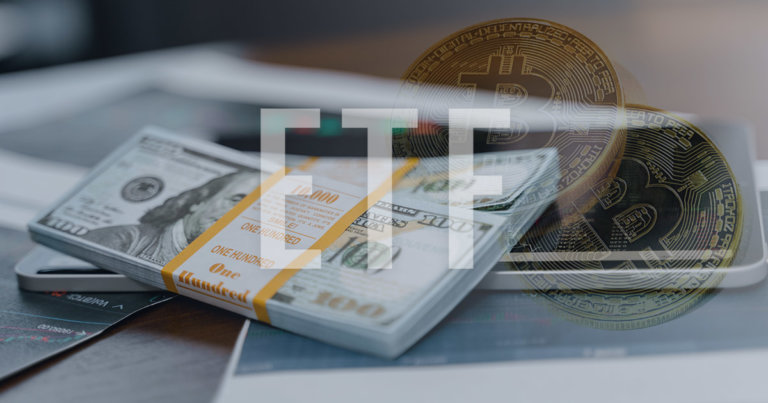 Grayscale: 77% of US investors are ‘more likely’ to tap into crypto if SEC approves Bitcoin ETF
Grayscale: 77% of US investors are ‘more likely’ to tap into crypto if SEC approves Bitcoin ETF Grayscale: 77% of US investors are ‘more likely’ to tap into crypto if SEC approves Bitcoin ETF
“While big banks continue to grapple with how to engage with Bitcoin, mainstream adoption has arrived,” according to Grayscale’s latest Bitcoin Investor Study.

Photo by Tima Miroshnichenko from Pexels
While more than a quarter of American retail investors already have Bitcoin (BTC) in their portfolios, this number would likely be much higher if the U.S. Securities and Exchange Commission (SEC) approves a spot-based Bitcoin exchange-traded fund (ETF), according to Grayscale Investments.
Per the third annual Bitcoin Investor Study published by the crypto investment giant on Monday, out of 1,000 surveyed U.S. consumers—who had at least $10,000 in household investable assets and at least $50,000 in household income—26% have already invested in BTC.
Does it feel like 2021 was a pivotal year for #crypto acceptance and adoption? Find out just how much has changed in our annual survey of investor attitudes toward #Bitcoin: https://t.co/lIHAUjQuHy pic.twitter.com/GwmZcj7LCS
— Grayscale (@Grayscale) December 6, 2021
Notably, the vast majority of those who already invested in Bitcoin—87%—also owned at least one other digital currency, the study showed.
“Demand for Bitcoin has risen tremendously: more than half (55%) of current investors in Bitcoin began investing over the last 12 months. Investors are eager to buy, a sentiment reflected by the recent all-time high in November 2021, placing Bitcoin closer to $100,000 than it is to zero. Most of these investors are ‘hodling,’” Grayscale’s researchers pointed out.
The latter conclusion was backed by the fact that roughly 66% of surveyed Bitcoin investors who bought BTC more than a year ago were still holding their coins. Meanwhile, 91% of those who ultimately sold at least some portion of their BTC did so at a profit.
“The results of the 2021 Bitcoin Investor Study confirm that more investors see long-term value in adding Bitcoin and digital currencies to their investment portfolios,” added Grayscale Investments CEO Michael Sonnenshein.
Throes of Bitcoin ETFs
At the same time, over three-fourths of Grayscale’s survey respondents said they “would be more likely” to invest in Bitcoin if there was an option to do so via an exchange-traded fund.
“More than three-quarters (77%) of U.S. investors said they would be more likely to invest in Bitcoin if an ETF existed,” the researchers reported.
Exchange-traded funds, or ETFs, are a type of securities pegged to single assets or baskets of them. As the name suggests, shares of ETFs can be traded on traditional exchanges—regardless of what their underlying assets are.
This way, crypto-centric ETFs could also help institutional investors get exposure to digital assets without buying or holding them directly—which is oftentimes impossible for big players due to regulatory restrictions.
12/06/21 UPDATE: Net Assets Under Management, Holdings per Share, and Market Price per Share for our Investment Products.
Total AUM: $45.9 billion$BTC $BAT $BCH $LINK $MANA $ETH $ETC $FIL $ZEN $LTC $LPT $XLM $ZEC $UNI $AAVE $COMP $CRV $MKR $SUSHI $SNX $YFI $UMA $BNT $ADA $SOL pic.twitter.com/XfLgG1R2Cj
— Grayscale (@Grayscale) December 6, 2021
Over the past few years, numerous companies filed their applications for Bitcoin ETFs—but the SEC has turned them all down. So far, the closest the crypto industry has come to a Bitcoin ETF is the approval of ProShares’ Bitcoin futures ETF and VanEck’s Bitcoin Strategy ETF.
However, both of these funds are pegged to BTC futures contracts instead of the actual Bitcoin—and that’s not exactly what retail investors would prefer.
“While the Bitcoin community at large (beyond the scope of those surveyed) generally prefers the approval of a spot-based Bitcoin ETF that is backed by actual Bitcoin and not futures, the futures-based Bitcoin ETF is a good start on the path to wider-scale adoption,” the researchers concluded.


























































